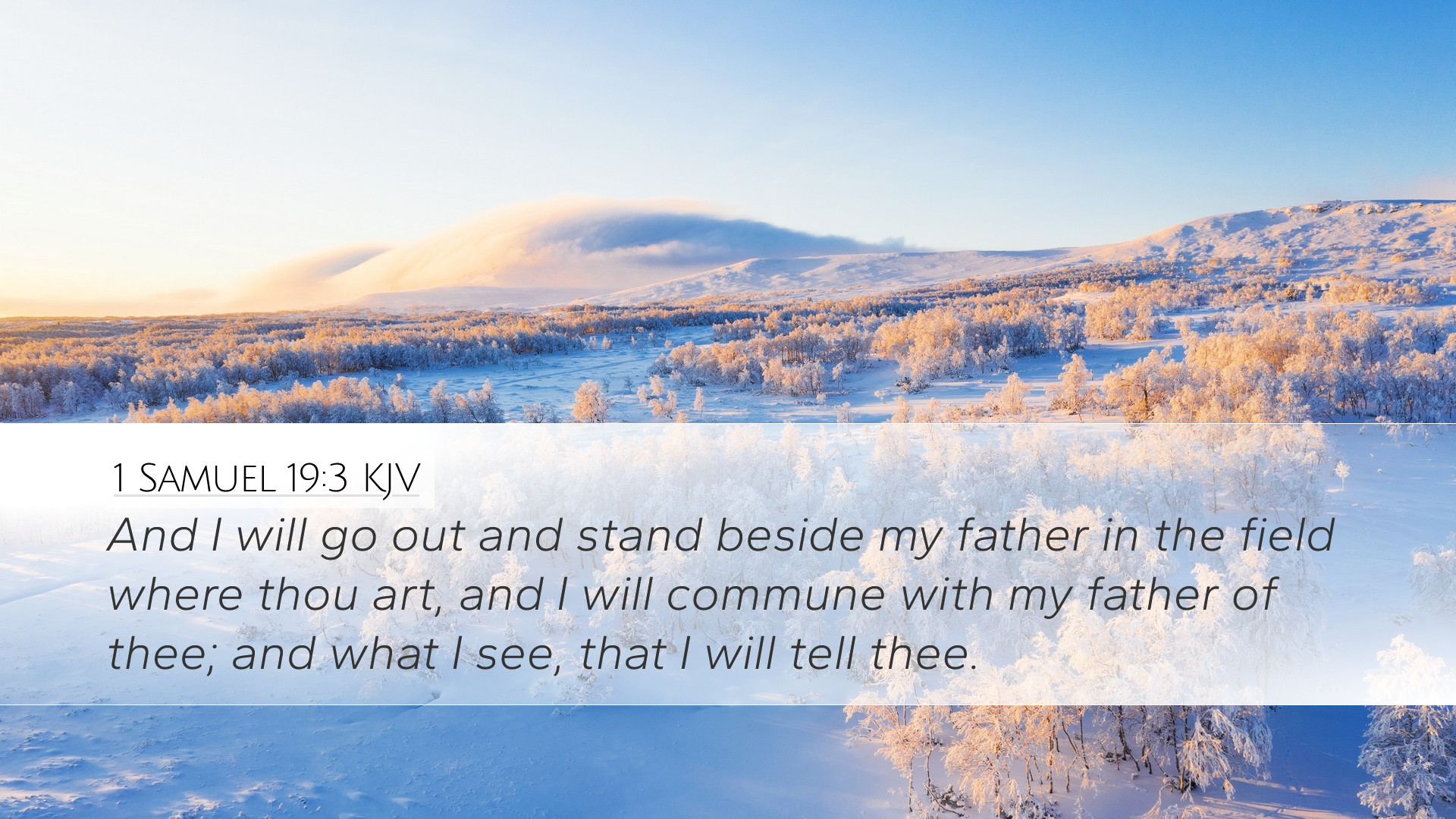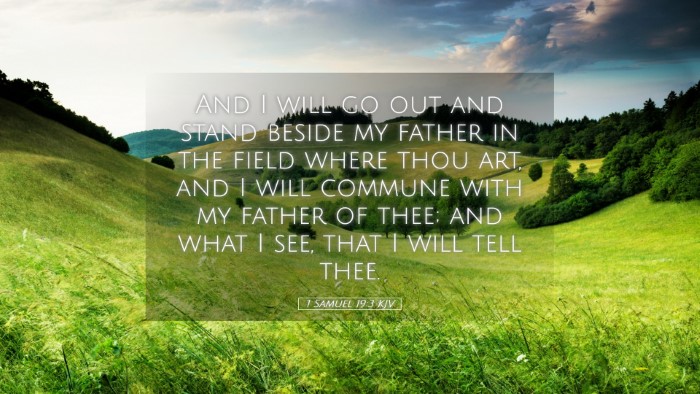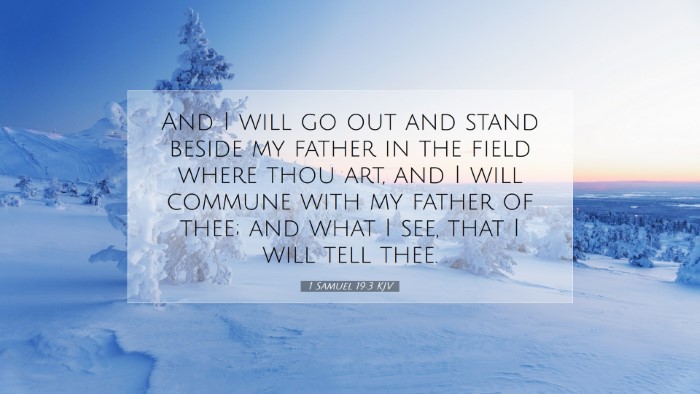Commentary on 1 Samuel 19:3
Verse (1 Samuel 19:3): "And I will go out and stand beside my father in the field where you are. I will speak to my father about you; if I learn anything, I will tell you."
Introduction
This verse encapsulates a pivotal moment in the narrative of David, highlighting the themes of friendship, loyalty, and the dynamics of familial relationships. In the backdrop of King Saul's escalating paranoia and hostility towards David, this verse introduces Jonathan, Saul’s son and David’s closest friend, as a pivotal character who navigates these tensions. The insights derived from the commentaries explore the significance of these actions and the implications for our understanding of divine providence and human agency.
Insights from Matthew Henry
Matthew Henry comments extensively on the relational dynamics presented in this passage, noting the steadfast loyalty of Jonathan towards David. He emphasizes that Jonathan's decision to intercede on behalf of David reflects a noble character, showcasing the essence of true friendship. According to Henry:
- Faithful Advocacy: Jonathan proactively seeks to mediate between David and Saul, demonstrating the importance of interpersonal relationships in the face of conflict. His willingness to confront his father on behalf of David underscores a deep commitment to honesty and justice.
- Divine Intervention: Henry suggests that Jonathan's actions are guided by a higher purpose, portraying how God orchestrates events even amidst human conflict. This evokes a broader theme of providential care, reassuring believers that God can work through the complexities of human relationships to fulfill His divine plans.
Perspectives from Albert Barnes
Albert Barnes provides a detailed analysis, focusing on the courage required for Jonathan to approach Saul. He highlights several key themes:
- Courageous Friendships: Barnes notes that Jonathan's bravery in approaching Saul reflects a profound commitment to friendship that often involves risk and sacrifice. The act of standing 'beside' Saul illustrates both physical and emotional proximity, indicative of Jonathan's strategic wisdom in positioning himself to gain insights from his father.
- Loyalty and Duty: Jonathan navigates his dual loyalty to his father and to David, which provides a crucial intersection of personal duty and moral obligation. Barnes posits that this tension is reflective of the struggles believers often face in balancing familial loyalty with adherence to righteousness.
Thoughts from Adam Clarke
Adam Clarke presents a more analytical view of the implications of the verse, considering the sociopolitical context:
- The Role of Negotiation: Clarke emphasizes the significance of negotiation in leadership and familial relations, illustrating that Jonathan's initiative is not merely an emotional appeal but a strategic maneuver within a royal context. This captures the essence of effective leadership which blends compassion with prudence.
- Symbolism of the Field: Notably, the choice of the field as the meeting point symbolizes openness and the transparency required in difficult communications. It represents a space of potential reconciliation and trust, contrasting with the hidden agendas often found in court politics.
Theological Reflections
This verse invites readers to examine the nature of divine providence operating through human relationships. The following themes emerge from the combined commentaries:
- Divine Sovereignty and Human Responsibility: The interaction between Jonathan, Saul, and David illustrates the complex web of divine sovereignty working alongside human choices. The believer is reminded of God's overarching plan while being called to act justly in their relationships.
- Friendship as a Reflection of God’s Love: The loyalty exhibited by Jonathan serves as a testament to a Christ-like friendship. This verse challenges believers to embody this kind of faithful love and courageous advocacy for one another in the face of adversity.
Conclusion
1 Samuel 19:3 serves as a profound testament to the nuances of friendship, loyalty, and divine providence within the complex narrative of David and Saul. The insights drawn from the commentaries underscore the essential qualities of advocacy and courage that characterize true discipleship. Pastors, students, and scholars are encouraged to reflect on their own relationships and the calls God places on their hearts to act justly, love mercy, and walk humbly with Him.


